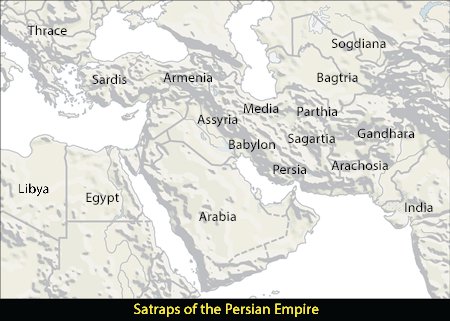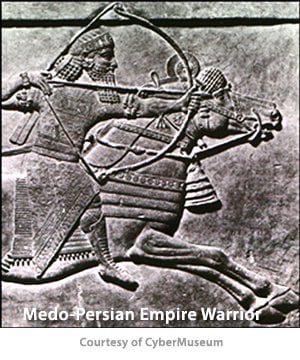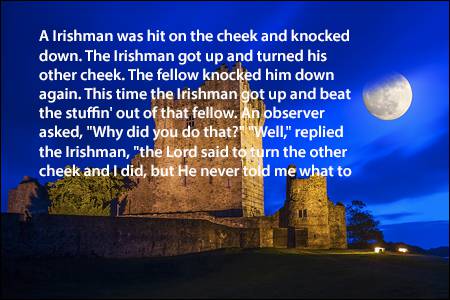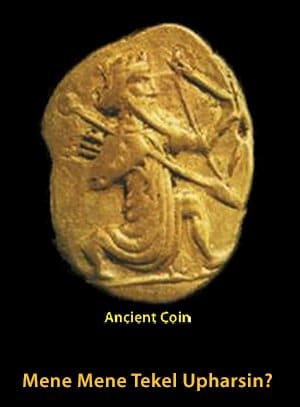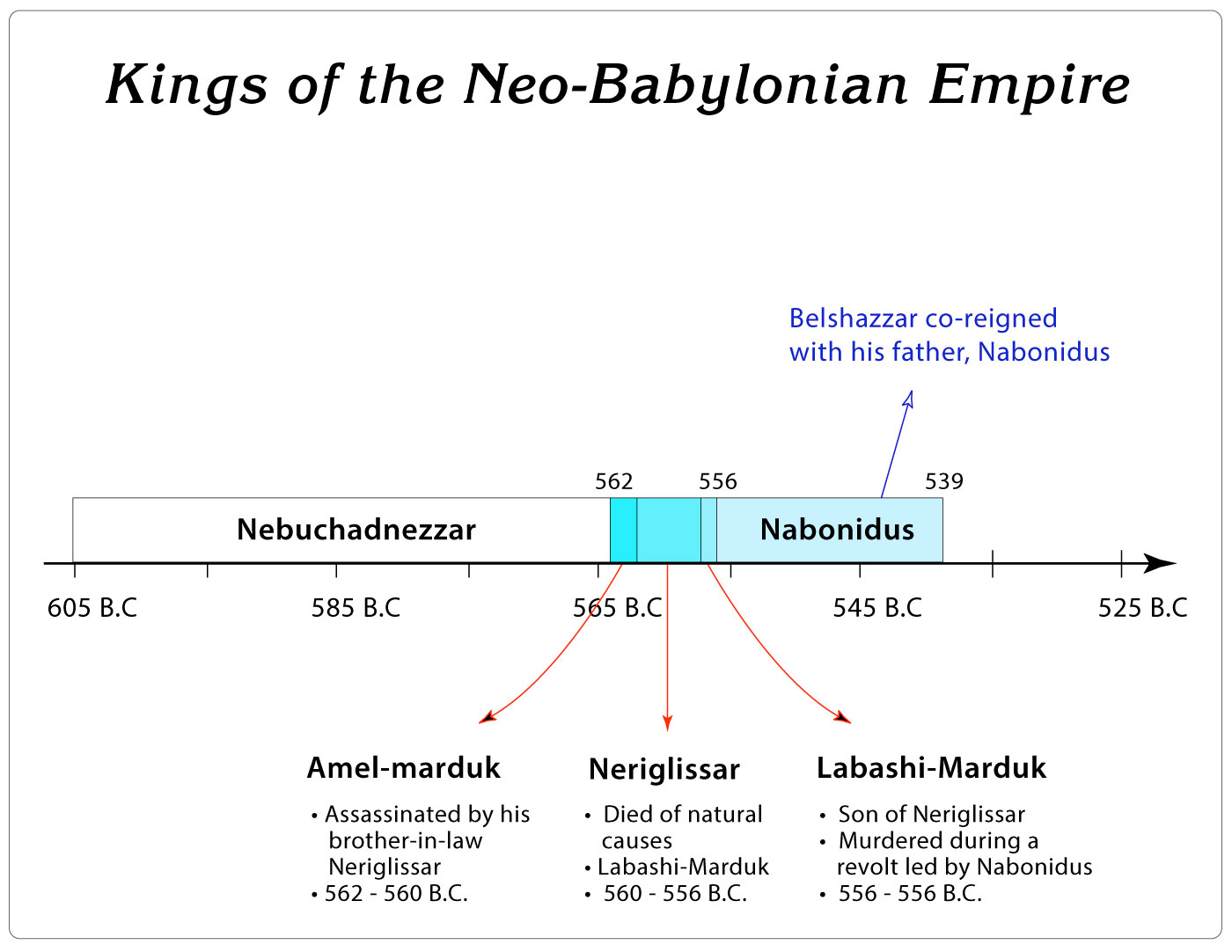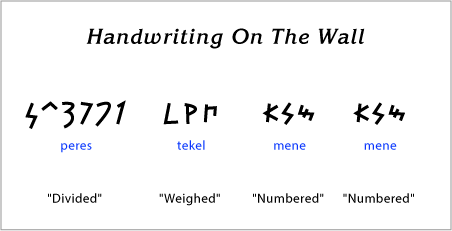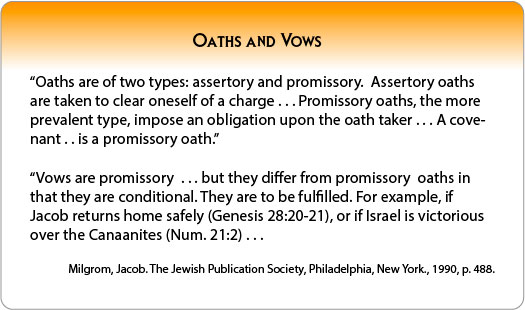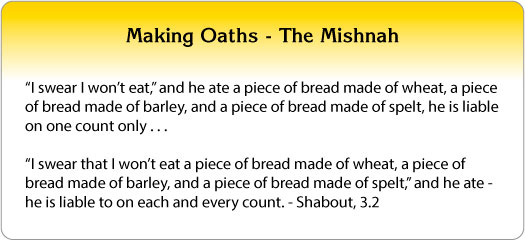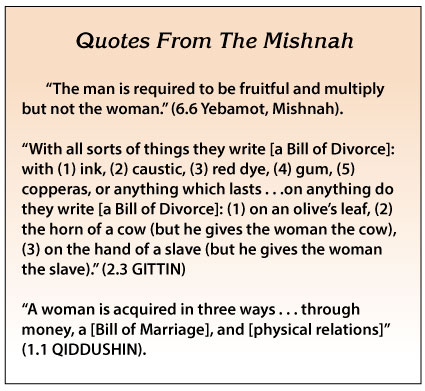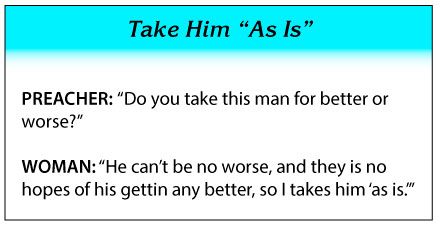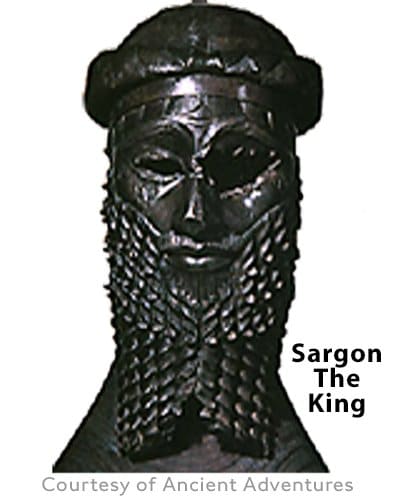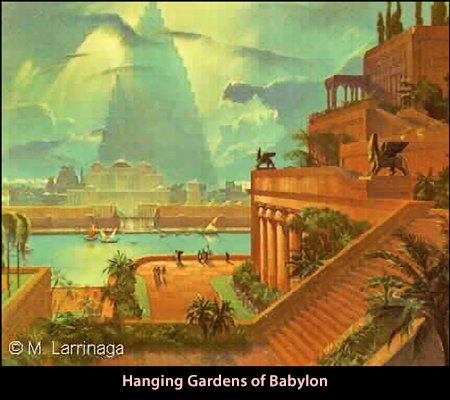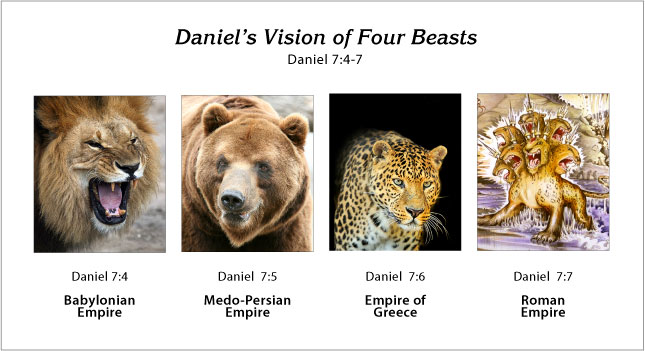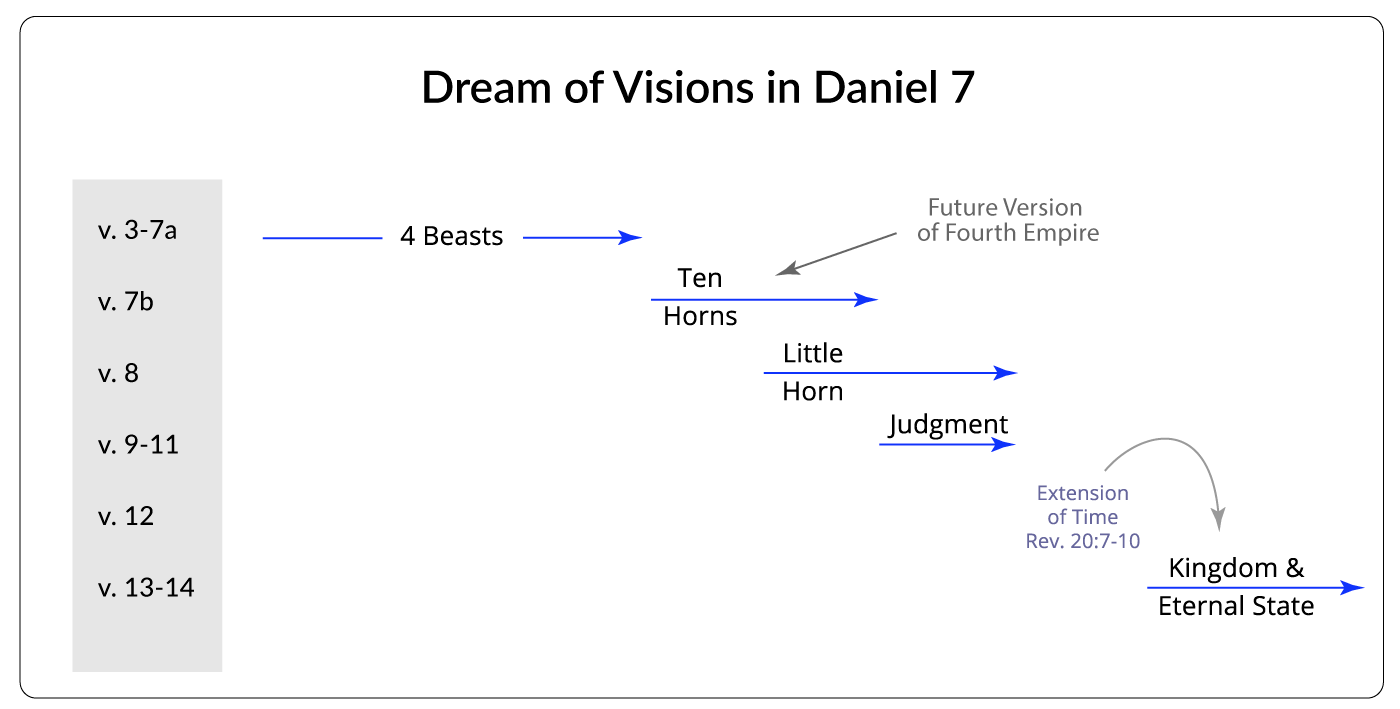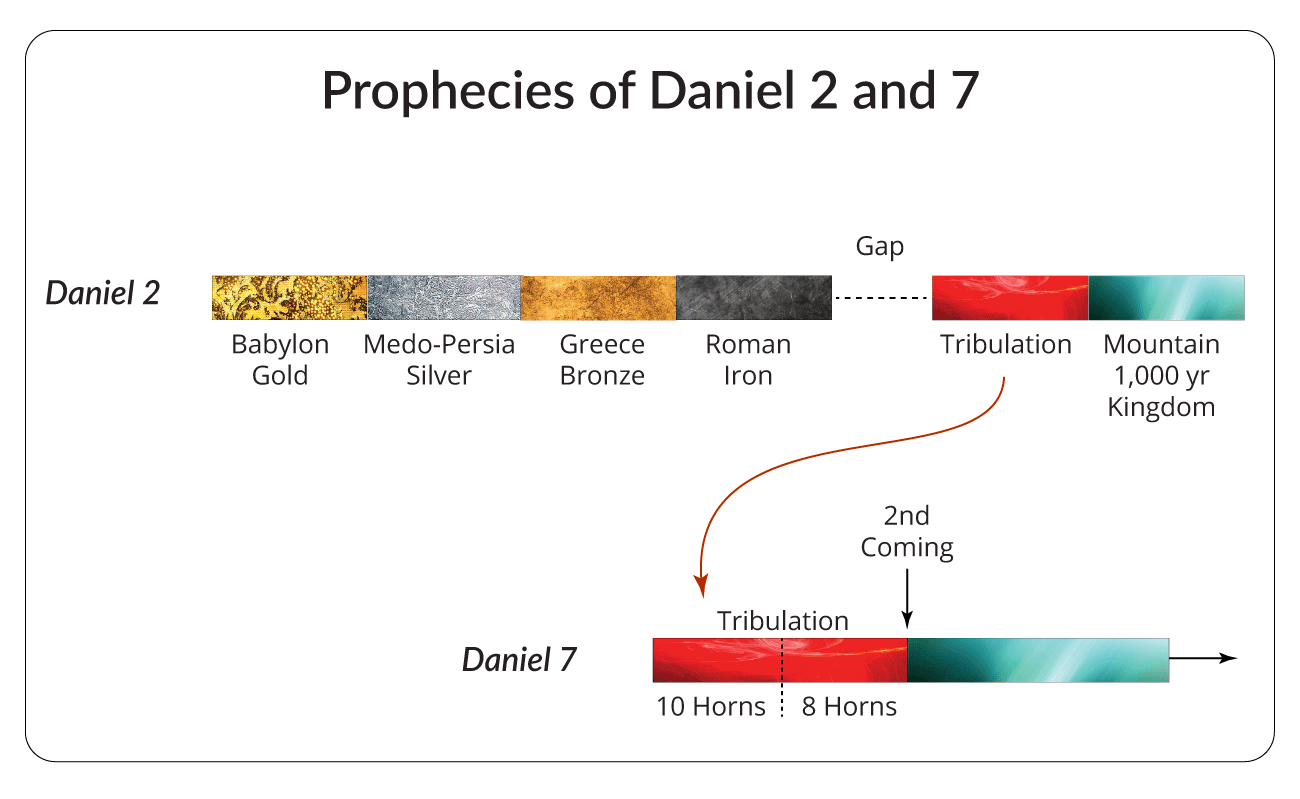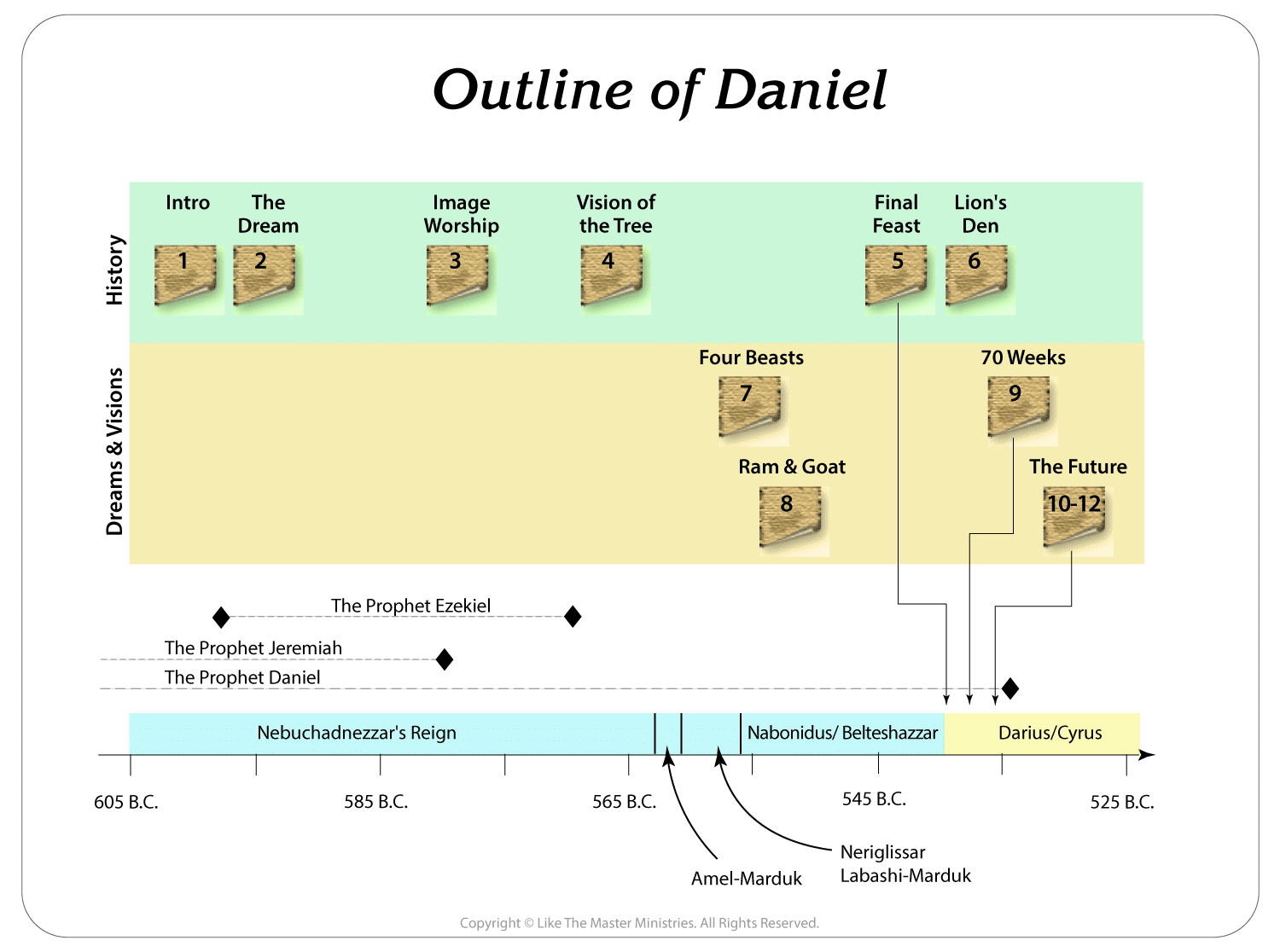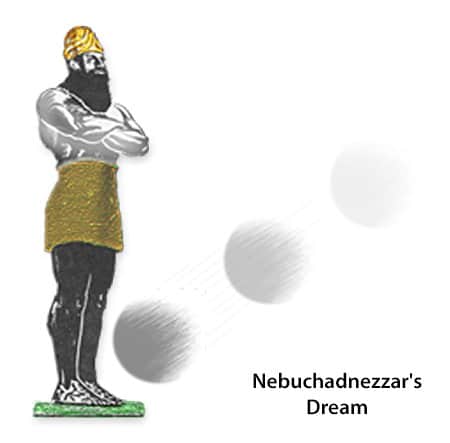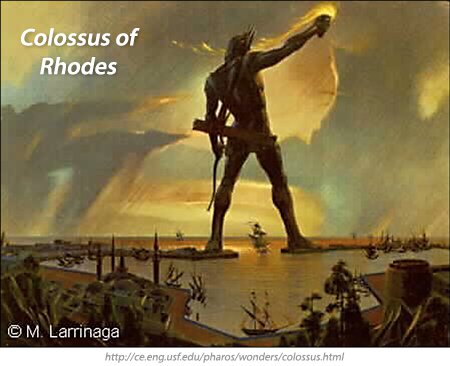Faithful Daniel
Darius was sixty-two years old when he led the Medo-Persian army to victory in the city of Babylon (Daniel 5:30-31). He had been born in 601 B.C., the son of Ahasruerus (Daniel 9:1), when Daniel and his friends were teenagers. In the cuneiform texts, Darius is known as Gubaru I. Archaeology has revealed that Gubaru I – Daniel’s Darius – was the general who led the Medo-Persians to victory over Babylon. After the victory he remained in Babylon and became the governor of the city and was responsible for establishing the administration of the Medo-Persian empire. The cuneiform texts say that he died one year after his glorious victory. When the Babylonian Empire was defeated in 539 B.C., Daniel was in his eighties. Yet, he desired to help this younger man. What a wonderful saint Daniel was!
Position and Power
There must have been excitement among the Medo-Persians over the long, hard fought victory. But scripture does not give us any details of the conquest, the victory celebration, Daniel’s rise to a position of authority, or Darius’ religious beliefs. God is only interested in challenging us with several examples of the spiritual character of His servant Daniel. But chapter six starts by telling us that Daniel was back in a leadership position, but this time he is with the Medo-Persian Empire.
It seemed good to Darius to appoint 120 satraps over the kingdom, that they should be in charge of the whole kingdom, and over them three commissioners (of whom Daniel was one), that these satraps might be accountable to them, and that the king might not suffer loss. Daniel 6:1-2 (NASB)
We discover that Daniel and two other unknown commissioners were given oversight over one hundred and twenty satraps. That is a lot of responsibility. Many have disputed this number by citing the ancient writer Herodotus, but other ancient historians provide information that support the statements of Daniel.
Satraps and Commissioners
The satraps had responsibility for managing the different provinces and various levels of government throughout the kingdom. They had responsibility for collecting taxes, sending recruits to Babylon for the army, and suppressing crime.
We understand that Babylon had royal inspectors who had the responsibility to visit the different provinces over which the satraps ruled and to check them out. These royal inspectors were spies for the government. They were the king’s eyes and ears. It was their job to make sure the king did not suffer loss. They reported any wrong doing such as graft or dishonest government officials back to Babylon. It appears from Daniel 6:2 that they reported to Daniel and the other two commissioners.
Trouble Is Coming
After awhile Darius began to notice that Daniel was a better commissioner than the other two, and planned to promote him.
Then this Daniel began distinguishing himself among the commissioners and satraps because he possessed an extraordinary spirit, and the king planned to appoint him over the entire kingdom. Daniel 6:3 (NASB)
The other commissioners were disturbed with this plan. Is it possible that Daniel and his royal inspectors were more honest and Darius knew it? Were the other two commissioners taking bribes along with their royal inspectors and fearing what would happen when Daniel was promoted? They were disturbed over something and so they tried to find some fault with Daniel.
Then the commissioners and satraps began trying to find a ground of accusation against Daniel in regard to government affairs; but they could find no ground of accusation or evidence of corruption, inasmuch as he was faithful, and no negligence or corruption was to be found in him. Daniel 6:4 (NASB)
But they could not find anything wrong. Now we would say that Daniel was ethical, loyal, and responsible. Today some companies are training their employees to be “ethical” rather than teaching God’s ethics – the righteous standard of God as found in the Bible. Daniel did not need ethical training. He had the Word of Truth.
Our Heel
Someone recently said “the lead guy is always the target.” That is true. But when the person is a Christian, he or she does not need to be the “lead guy” to come under attack. Satan is attacking if a Christian is seeking to please the Lord. Attacks within the church usually come from poor understanding of the Bible, empire building, and an unwillingness to change. A serious and common “Achilles Heel” for Christians is a desire to please others – both Christians and non-Christians. Daniel wanted to please only God and so it is no surprise that trouble came.
Since these men could not find anything wrong with Daniel, they decided to create a situation and have Daniel killed.
Then these men said, “We shall not find any ground of accusation against this Daniel unless we find it against him with regard to the law of his God.” Then these commissioners and satraps came by agreement to the king and spoke to him as follows: “King Darius, live forever! All the commissioners of the kingdom, the prefects and the satraps, the high officials and the governors have consulted together that the king should establish a statute and enforce an injunction that anyone who makes a petition to any god or man besides you, O king, for thirty days, shall be cast into the lions’ den. Now, O king, establish the injunction and sign the document so that it may not be changed, according to the law of the Medes and Persians, which may not be revoked.” Daniel 6:5-8 (NASB)
Darius did not realize what they were doing and signed the document.
Therefore King Darius signed the document, that is, the injunction. Daniel 6:9 (NASB)
Faithful Daniel
The document was signed but Daniel did not care.
Now when Daniel knew that the document was signed, he entered his house (now in his roof chamber he had windows open toward Jerusalem); and he continued kneeling on his knees three times a day, praying and giving thanks before his God, as he had been doing previously. Daniel 6:10 (NASB)
Daniel did what he had always done. He prayed with the windows open. Everyone could see. The next verse tells us that these men knew where to find Daniel.
Then these men came by agreement and found Daniel making petition and supplication before his God. Daniel 6:11 (NASB)
What would you have done? Some of us would have stopped praying reasoning to ourselves that God could not use us if we were dead. How could we be a witnesses if we were dead? Others would have closed the windows to protect themselves. Still some would have said, “I can pray in my head I do not really need to pray on my knees with the window open.” But not Daniel. He was not afraid. He was faithful. What would you have done? What will you do if persecution comes your way?
What did the early Christians do when they were warned by government officials to stop sharing Jesus? The answer is found in Acts 4.
And now, Lord, take note of their threats, and grant that Thy bond-servants may speak Thy word with all confidence, while Thou dost extend Thy hand to heal, and signs and wonders take place through the name of Thy holy servant Jesus. And when they had prayed, the place where they had gathered together was shaken, and they were all filled with the Holy Spirit, and began to speak the word of God with boldness. Acts 4:29-31 (NASB)
They prayed for boldness and they continued doing what they had been doing. They did not rationalize their situation into accommodation.
The Caring King
So the other two commissioners along with other government officials eagerly went to Darius with their evidence.
Then they approached and spoke before the king about the king’s injunction, “Did you not sign an injunction that any man who makes a petition to any god or man besides you, O king, for thirty days, is to be cast into the lions’ den?” The king answered and said, “The statement is true, according to the law of the Medes and Persians, which may not be revoked. Then they answered and spoke before the king, “Daniel, who is one of the exiles from Judah, pays no attention to you, O king, or to the injunction which you signed, but keeps making his petition three times a day.” Then, as soon as the king heard this statement, he was deeply distressed and set his mind on delivering Daniel; and even until sunset he kept exerting himself to rescue him. Daniel 6:12-14 (NASB)
Finally, Darius understood that he had made a mistake. He was slow to understand. Once he understood what was happening, he tried to free Daniel. But the two commissioners along with other government officials finally realized that Darius did not want to kill Daniel. So these bold men came to Darius and pushed him into the decision.
Then these men came by agreement to the king and said to the king, “Recognize, O king, that it is a law of the Medes and Persians that no injunction or statute which the king establishes may be changed.” Then the king gave orders, and Daniel was brought in and cast into the lions’ den. The king spoke and said to Daniel, “Your God whom you constantly serve will Himself deliver you.” And a stone was brought and laid over the mouth of the den; and the king sealed it with his own signet ring and with the signet rings of his nobles, so that nothing might be changed in regard to Daniel. Daniel 6:15-17 (NASB)
Darius tried to encourage Daniel with, “Your God whom you constantly serve will Himself deliver you.”
God’s Miracle
So with Daniel in the lions den, Darius left and struggled to go to sleep. In spite of his statement of encouragement, he worried about what would happen to Daniel.
Then the king went off to his palace and spent the night fasting, and no entertainment was brought before him; and his sleep fled from him. Then the king arose with the dawn, at the break of day, and went in haste to the lions’ den. And when he had come near the den to Daniel, he cried out with a troubled voice. The king spoke and said to Daniel, “Daniel, servant of the living God, has your God, whom you constantly serve, been able to deliver you from the lions?” Then Daniel spoke to the king, “O king, live forever! My God sent His angel and shut the lions’ mouths, and they have not harmed me, inasmuch as I was found innocent before Him; and also toward you, O king, I have committed no crime.” Then the king was very pleased and gave orders for Daniel to be taken up out of the den. So Daniel was taken up out of the den, and no injury whatever was found on him, because he had trusted in his God. Daniel 6:18-23 (NASB)
In the morning, Darius rushed to see if Daniel was alive. Daniel was alive and Darius was very pleased. God had chosen to save Daniel. Apparently after the thirty days (verse 7) had passed, Darius ordered Daniel’s enemies killed.
The king then gave orders, and they brought those men who had maliciously accused Daniel, and they cast them, their children, and their wives into the lions’ den; and they had not reached the bottom of the den before the lions overpowered them and crushed all their bones. Daniel 6:24 (NASB)
Then he issued an edict which gave glory, praise and honor to God.
Then Darius the king wrote to all the peoples, nations, and men of every language who were living in all the land: “May your peace abound! I make a decree that in all the dominion of my kingdom men are to fear and tremble before the God of Daniel; For He is the living God and enduring forever, And His kingdom is one which will not be destroyed, And His dominion will be forever. He delivers and rescues and performs signs and wonders In heaven and on earth, Who has also delivered Daniel from the power of the lions.” Daniel 6:25-27 (NASB)
What a miracle God performed.
So this Daniel enjoyed success in the reign of Darius and in the reign of Cyrus the Persian. Daniel 6:28 (NASB)
Conclusion
I believe that God included this event as one more reminder that He wants us to be faithful to Him no matter what happens to us. God honored Shadrach, Meshach and Abed-nego in Daniel 3:28 with Darius’ comment,
. . . . delivered His servants who put their trust in Him, violating the king’s command, and yielded up their bodies. Daniel 3:28 (NASB)
They trusted God. God also honored bold Daniel with,
Daniel was taken up out of the den, and no injury whatever was found on him, because he had trusted in his God. Daniel 6:23 (NASB)
The key to faithfulness is trust and boldness which comes through the Holy Spirit. Where are you? Are you faithful to Him or in compromise to people, situations, and circumstances? Are you trusting Him? Are you looking to the Spirit to empower you (Ephesians 5:17-18)? Are you willing to submit to His will? The great reformer Zwingle had this to say to us,
The blows by which people are attempting to subvert the house of God are so rude and the assaults so frequent, that it is not only the winds and rain that beat on it . . . but hail and lightning. Had I not noticed that the Lord was preserving the vessel, I would long ago have thrown the helm into the sea. I behold Him through the storm strengthening, adjusting the yards, spreading the sails, and commanding the very winds. Should I not, then, be a coward if I were to abandon my post? I commit myself wholly to His sovereign goodness! Let Him govern; let Him hurry or delay; let Him plunge us into the bottom of the sea; we will fear nothing!
